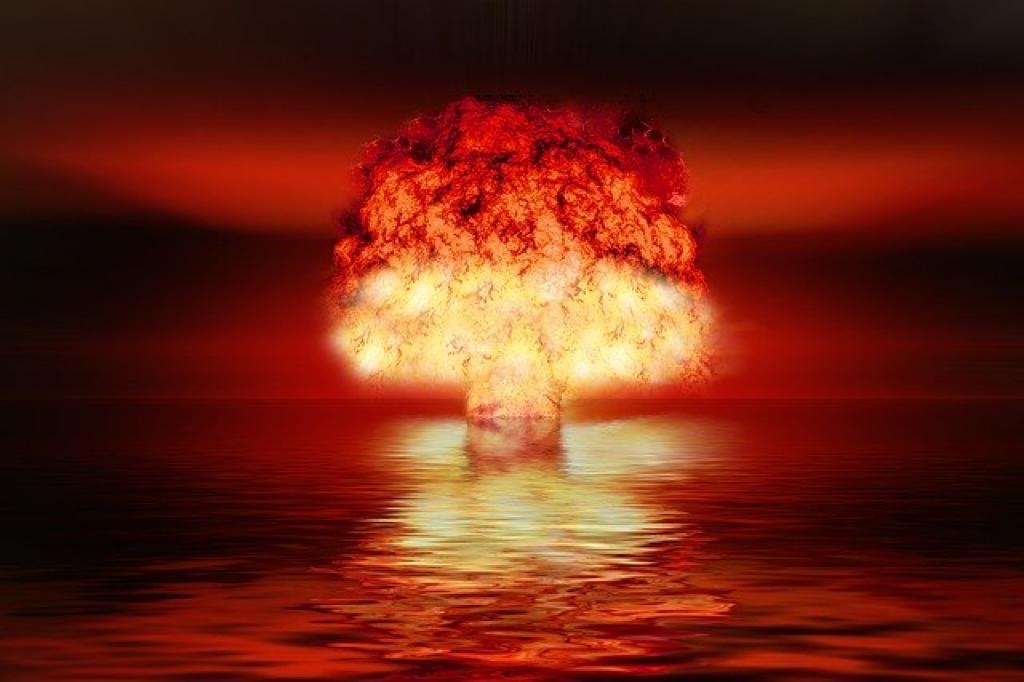What prompted Robert Oppenheimer to quote Gita

Robert Oppenheimer was the principal architect of the world’s first nuclear weapon and headed the Manhattan Project during the second world war. As he watched the first atomic explosion, he was moved to quote from Gita.
Bhagavad Gita-” the song of the lord.”
Bhagavad Gita, a small section of Hindu Epic, Mahabharata presents a tussle between two contrary moral positions-Krishna’s emphasis on doing one’s duty on one side and Arjuna’s focus on avoiding bad consequences.
This debate occurs on the eve of the great war, and the doubt about the righteousness of what they are doing is bothering Arjuna, the great warrior. Arjuna questions whether it is right to be concerned only with one’s duty and to be indifferent to the misery it inflicts. Krishna, a divine incarnation, now Arjuna’s Charioteer argues against him. Krishna’s emphasis on the priority of doing one’s duty irrespective of his evaluation on the consequences have been repeated time and again in Indian philosophy.
Krishna’s hallowing of the demands of the duty wins the argument, and it became a treatise of great theological importance in Hindu philosophy. The admiration for Gita has been a lasting phenomenon in various cultures across the globe, including Western literature. (My knowledge of this honoured epic is extremely limited, so I apologise for any errors in interpretation)
Nuclear Weapons,ultimate weapons of mass destruction
Development of nuclear weapons brought a whole new chapter both in the world of weapons of mass destruction as well as in its ethical, moral righteousness of usage on humanity as genocide. What the world learned from Hiroshima and Nagasaki in the aftermath of the bomb explosion are harrowing, and I believe no philosophical arguments can atone for that kind of premeditated atrocities to humanity.
The excitement generated by the destructive power of the arms and weapon men created, dissociated them from the moral righteousness of the potential destruction of humanity. This has been a well-observed psychological entity. That might be the reason why, even today, men engage in this kind of horrendous crime with indifference.
Robert Oppenheimer’s early life
Oppenheimer, a Jewish origin intellectual, was considered a genius from childhood.When he was pursuing doctorate in Harvard ,it’s said that Oppenheimer struggled with depression and tried to poison his tutor, an act no one has properly made sense of. He held strong Communist sympathy during early adulthood.
Like many Westerners of that period, Oppenheimer was attracted to the philosophy of Gita and found it as a useful guide to structuring his life around. Oppenheimer knew Sanskrit well enough to get its teaching right.

Witnessing the first detonation
When Oppenheimer witnessed the first detonation of the nuclear weapon, did he felt powerful like God, or was he humbled by the experience?
I think it’s a mix of both.
As he watched the atmospheric explosion of the first atom bomb in a U.S. desert near the village of Oscuro on 16 July 1945, he was moved to quote from the millennia-old Indian Hindu Sacred text, Bhagavad Gita:
“The radiance of a thousand suns were to burst at once into the sky, that would be like the splendour of the mighty one.”
Why did Oppenheimer quote Bhagavad Gita
He went on to quote from Gita, as he witnessed the naked ruthless ugly face of death and devastation in Hiroshima and Nagasaki after the bombs were detonated.
“We knew the world would not be the same. A few people laughed; a few people cried. Most people were silent. I remembered the line from the Hindu Scripture, the Gita. Vishnu is trying to persuade the Prince that he should do his duty, and, to impress him, takes multi-armed form and says. “Now I am become Death, the destroyer of worlds”. I suppose we all thought that, one way or another”.
Emulating Arjuna for making sense of his actions
In Bhagavad Gita, when Arjuna was torn, facing an opposing army consisting of his friends and relatives, Krishna teaches him about a higher philosophy that would enable him to carry out his dharma (duties ) as a warrior.
Like the advice that Arjuna has received about his duty as a warrior fighting for a just cause, Oppenheimer the physicist could well find justification in his technical commitment to developing a bomb for what was clearly the right side.
Introspecting his actions, Oppenheimer said later on “When you see something that is technically sweet, you go on ahead and do it. You argue about what to do about it only after you have had your technical success”.
A changed man
Oppenheimer was never to achieve peace. Later as the consequences of nuclearisation became clearer to Oppenheimer, he went on to campaign against nuclear arms, with particular enthusiasm against hydrogen bomb. After all, he was only an agent carrying out his work as a physicist. How much blame could he take on himself for what has happened?. Philosophical teachings are a good gamble in human predicaments, and Oppenheimer might have been searching for answers from them.





Superb again. Nicely written Pussytha
Thank you, ANS. Glad to know that you liked it.